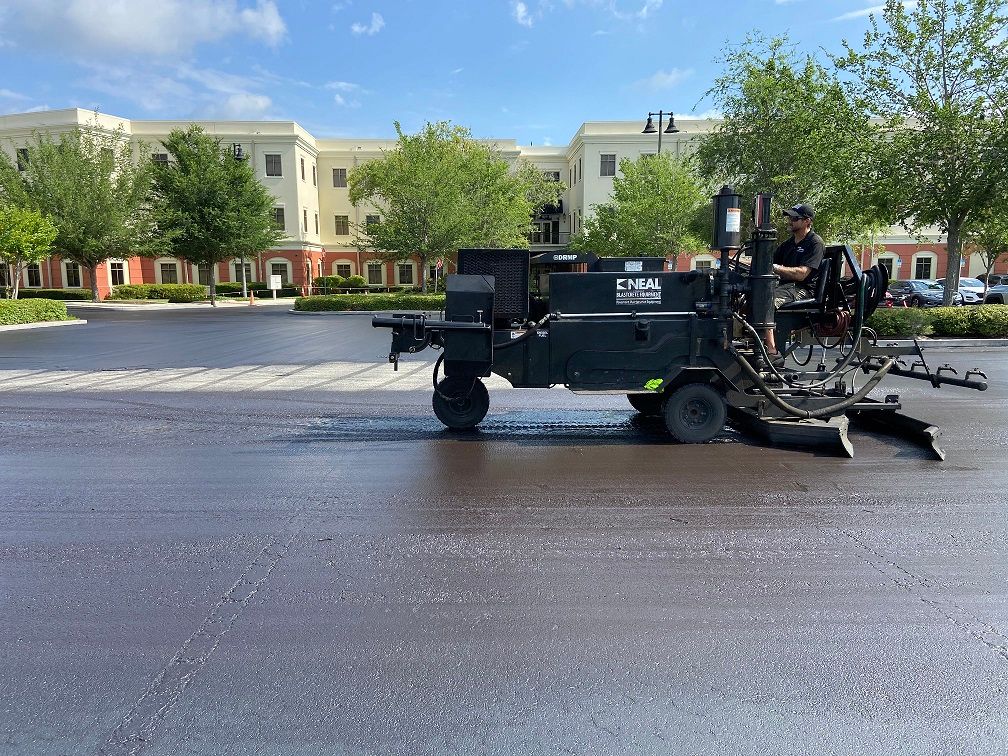

A fresh layer of asphalt can dramatically improve your property's curb appeal and functionality. Whether it's a new driveway for your home or a parking lot for your business, a smooth, durable surface makes a great first impression. However, the success of any paving project depends heavily on proper preparation. Before the heavy machinery arrives, there are several crucial steps property owners should take to ensure a seamless and efficient installation.
This guide will walk you through everything you need to know to prepare your property for asphalt paving. Following these steps will not only help your paving contractor work more efficiently but also contribute to the quality and longevity of your new asphalt surface. If you're planning a project and looking for expert paving in Palm Coast, FL, this preparation checklist will get you started on the right foot.
You might think that laying asphalt is as simple as pouring it onto the ground and smoothing it out. In reality, the work done before the asphalt is even mixed is what determines the final result. A well-prepared site ensures that the new asphalt has a stable foundation, which is essential for preventing cracks, potholes, and other forms of deterioration.
Proper site preparation addresses several critical factors:
By taking the time to prepare your property, you are making a direct investment in the durability and appearance of your new asphalt driveway or parking lot.
Ready to get your property in shape for its new look? Here are the essential steps to follow before the paving crew arrives.
The first and most important step is to provide a completely clear and accessible work area. This means removing anything that could get in the way of the paving process.
Essentially, the entire area to be paved should be empty. This gives the crew the space they need to operate heavy equipment safely and efficiently.
Clear communication with your contractor is vital. Before work begins, walk the property with your paving project manager to confirm the exact boundaries of the area to be paved. Use spray paint or flags to mark the perimeter.
It's also crucial to identify and mark any underground utilities. This includes:
Florida's "Call 811" service is a free resource that will send a professional to your property to locate and mark public utility lines. However, you are responsible for marking any private lines, such as those for irrigation or landscape lighting. Failing to do so can lead to costly damage and project delays.
Paving equipment is large and requires significant overhead clearance. Take the time to trim back any tree branches, hedges, or shrubs that hang over the work area. A clearance of at least 10-12 feet is generally recommended. This prevents damage to your landscaping and allows machinery like dump trucks and pavers to move freely without obstruction. Trimming also helps prevent leaves and other debris from falling onto the fresh asphalt as it cures.
Paving contractors often need access to a water source for various tasks, including dust control and cleaning equipment. Make sure an outdoor spigot is accessible and in working order. If you have an automated sprinkler system near the paving area, it's a good idea to turn it off a few days before the project starts. This prevents the ground from becoming oversaturated, which can compromise the stability of the sub-base.
An asphalt paving project is a significant undertaking that will temporarily disrupt access to the area.
After the asphalt is laid, it will need time to cure. Your contractor will advise you on how long to stay off the new surface—typically 2-3 days for vehicle traffic. Following this guidance is crucial for preventing tire marks and indentations in your new pavement.
Maintain open lines of communication with your paving company. Before the project begins, confirm the start date and ask if they have any specific requirements for your property. Discuss the project timeline, payment schedule, and any concerns you might have. A good contractor will be happy to answer your questions and provide clear instructions. Knowing what to expect will help ensure the entire process goes smoothly from start to finish.
Proper preparation is the foundation of a successful asphalt paving project. By clearing the work area, marking boundaries, managing landscaping, and planning for disruptions, you set the stage for a high-quality, long-lasting result. These steps help your paving team work safely and effectively, ultimately saving you time and money.
If you’re looking for reliable and professional paving in Palm Coast, FL, the experts at Florida Sealcoating are here to help. We have the experience and equipment to handle projects of all sizes, from residential driveways to large commercial parking lots. Contact Florida Sealcoating today for a free, no-obligation estimate and let us help you achieve a smooth, durable, and beautiful asphalt surface.
Get a free, no-obligation estimate for your asphalt project. Our team is ready to help protect and enhance your property.
(407) 942-3681